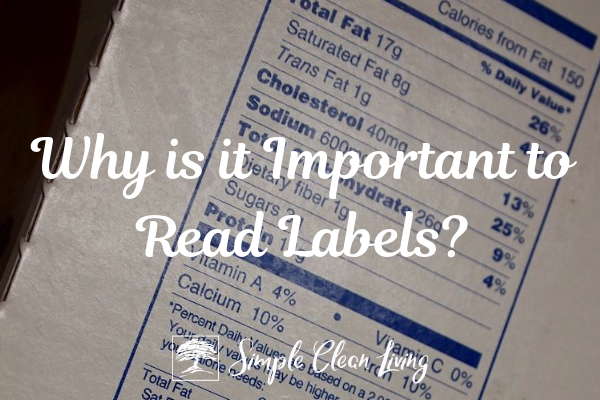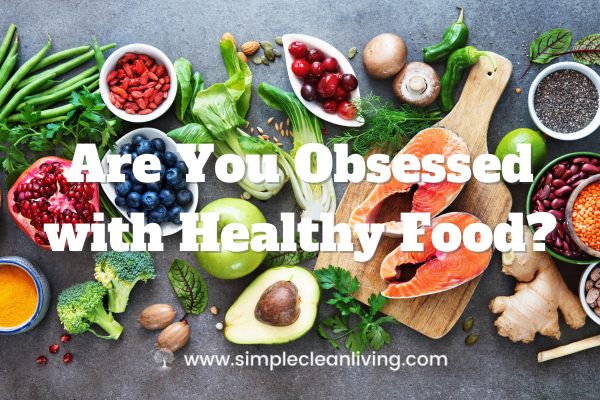Notice: I’m an affiliate for Amazon as well as other companies. Any links in this article may be affiliate links. I always appreciate it if you purchase something using my affiliate links. Doing so helps me to raise a little extra money that pays for the costs of running this site. And it allows me to continue bringing you quality content, all without costing you a thing! Thanks!
Do you read labels on the food you purchase? Today I’m sharing why it is important to do that!
Today I have an important question for you. Let’s say you went to a chemical manufacturing plant for a tour. At the end of the tour, they handed out little paper cups full of ammonium sulfate for you to drink. Would you? Most likely not. After all, what exactly IS in that cup, anyway?
The typical American diet is full of highly processed packaged foods. These foods have been enhanced with chemicals to make them more appealing to consumers’ taste buds. Artificial colors make certain products look more visually appealing. Artificial flavors make other products taste better. And Artificial preservatives allow products to sit on store shelves for months and months and sometimes even years without going bad.
But when you’re sensitive, eating too many chemical-filled, highly processed foods may not be such a great idea.
Chemical sensitivities
Many people react negatively to perfume, alcohol, caffeine, strong scents, and chemicals found in household cleaners and personal care products. Not every sensitive experiences sensitivity to these. But many do.
Because of this, a diet filled with highly processed foods may cause a reaction in some people. I personally react to additives such as MSG and certain food colorings. I definitely find that I do better when I limit processed foods and stick to more organic fresh foods.
If you find that you are having more digestive issues, skin problems, or allergy symptoms, some of the additives you’re consuming in the processed food you eat may be contributing.
Lacking nutrients
On top of the possibility of having a sensitivity to chemical additives, you may also face a lack of nutrients in these foods. Many products have been stripped of virtually anything of nutritional value and then “fortified” with synthetic vitamins and minerals in an attempt to give them some nutritional value.
Recently when I was at the store I picked up a package of frozen goodies that I used to love. I won’t mention the product name or what type of product it is, but ammonium sulfate is an actual ingredient of this product. So is diacetyl tartic acid esters of monodiglicerides. Huh? What in the world are they? Well, ammonium sulfate is commonly used as a fertilizer, in explosives, and as a cleaning and bleaching agent. It is commonly found for household use…but why exactly is it in something that people would actually eat?
This is why it is so important to read labels regularly when shopping. When we fill our bodies with all of these unknown chemical compounds, we simply do not know exactly how these artificial additives will harm our health in the long run. It is no different than going to the chemical plant and drinking a paper cup full of chemicals. We consume substances that have been approved by the government as being “safe” on a regular basis. But unfortunately, tests have never been run on the long-term safety of consuming these chemicals. And there has also been no testing to see how combinations of chemicals affect the human body.
Educate yourself!
We should never rely on a government official telling us that certain additives are safe. We can educate ourselves and learn about what these additives are and any negative health consequences. Then we can make informed choices on what we put in our bodies. You see, most of these chemical “ingredients” didn’t even exist 100 years ago. Our grandparents wouldn’t know what they are. They weren’t used in the food supply until recently. Food companies use these chemicals in food products here in the US. But the same chemicals are not used in other countries because they have been banned!
There is a general principle that I use with the food I purchase for myself…if I look at a label and it has ingredients that I have never heard of or that have long chemical names, they do NOT go in the grocery cart. I want my food as simple as possible and with real food ingredients!
So the next time you go shopping, read labels on the products you use. Ask yourself if the ingredients are really ones that you want to put in your body…or in the bodies of your family. And help yourself to become an informed consumer.
Or better yet, choose foods that don’t come with labels at all…..whole, fresh foods that don’t require labels!




